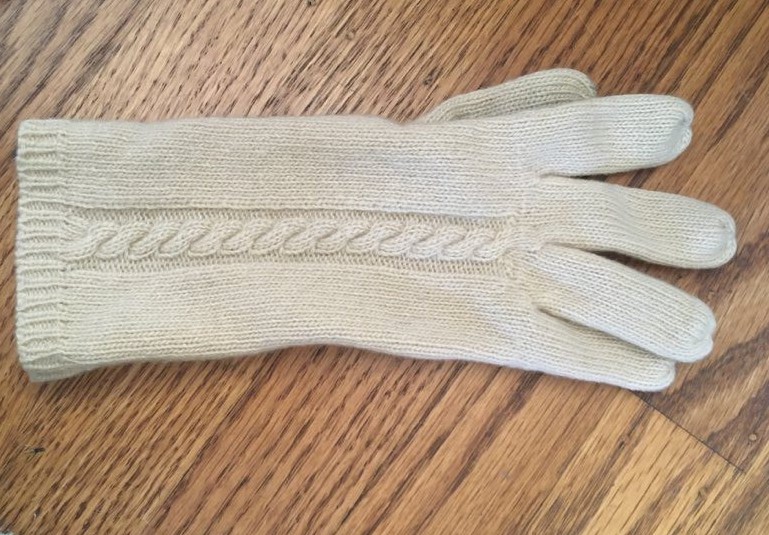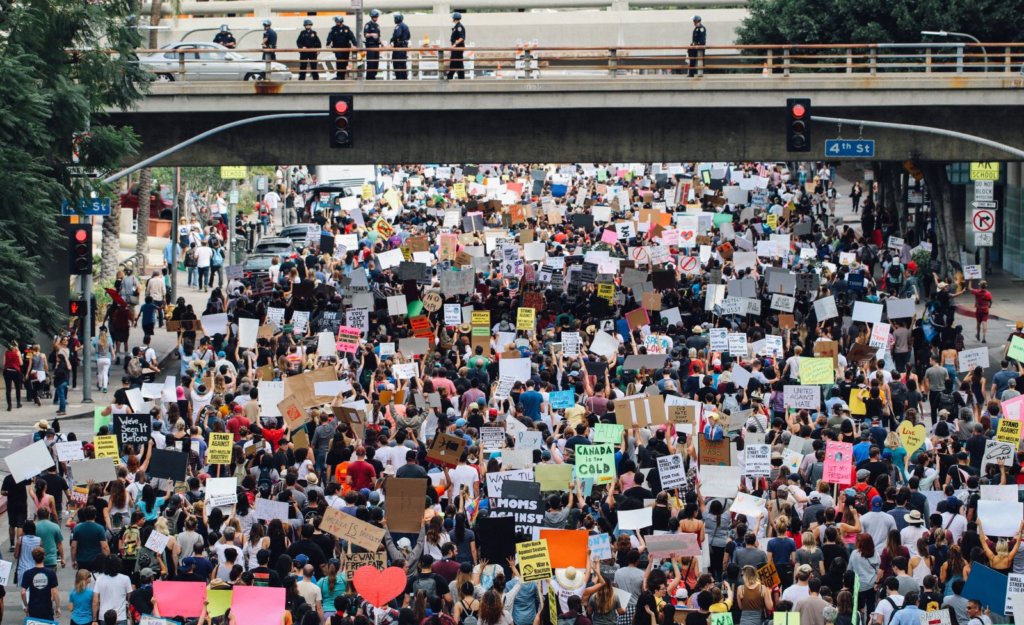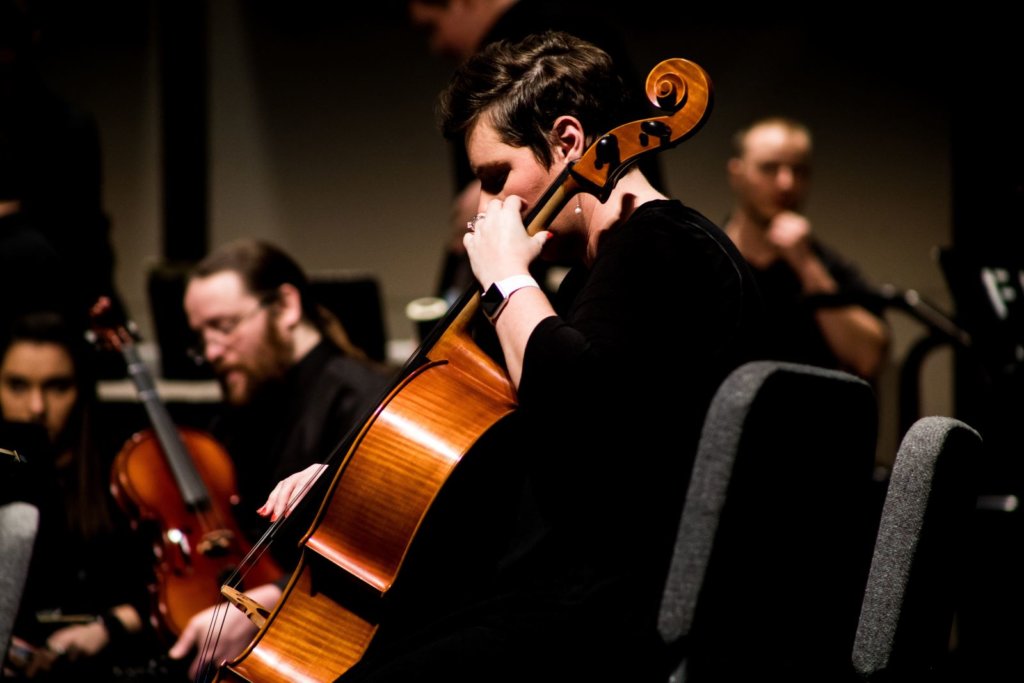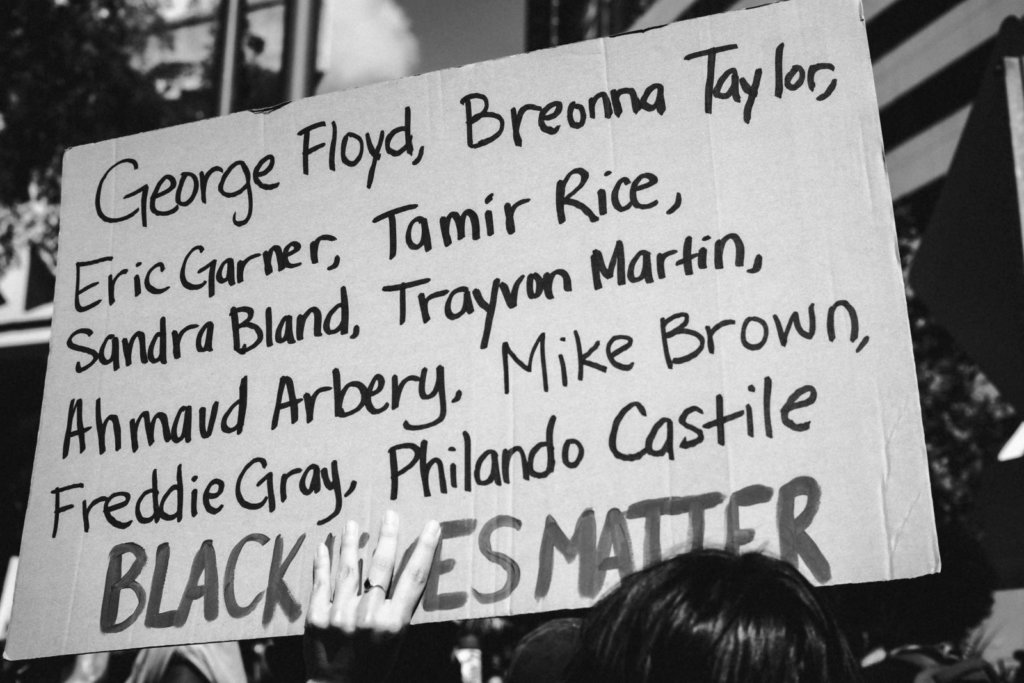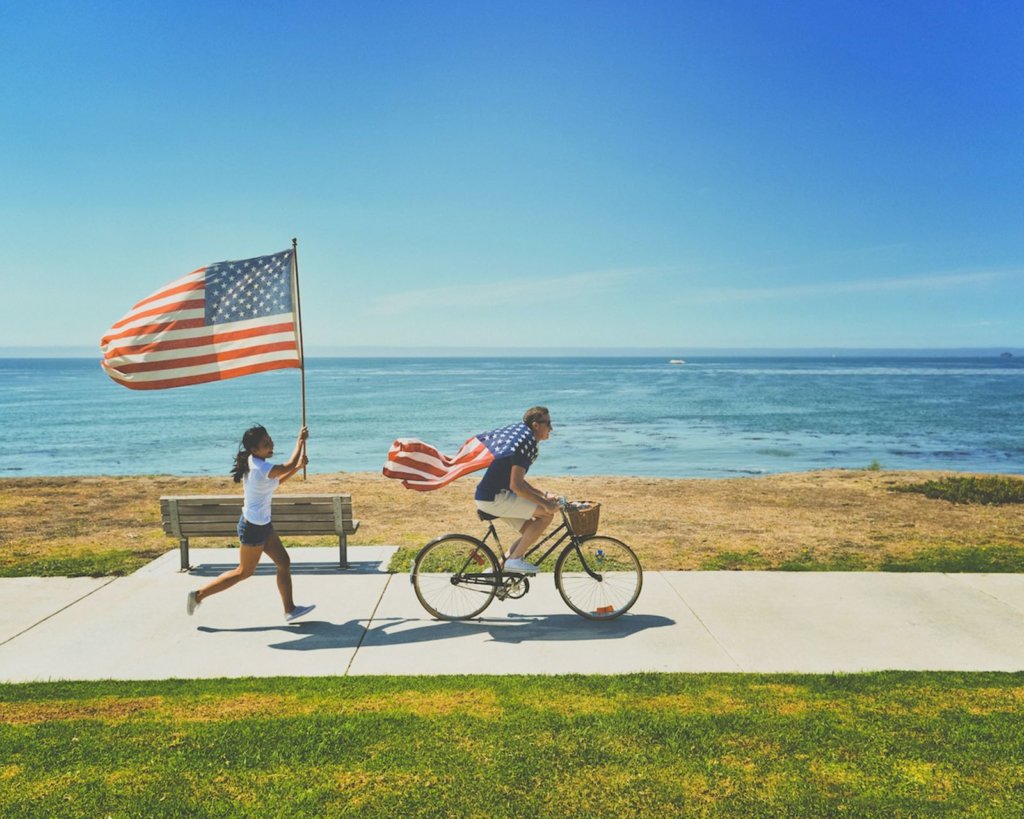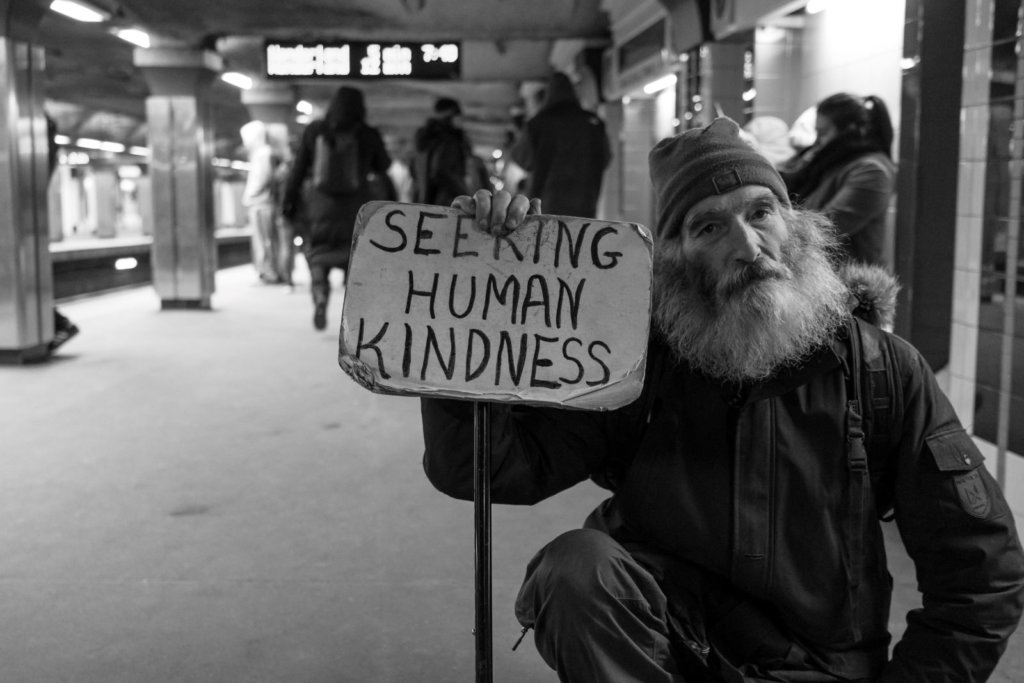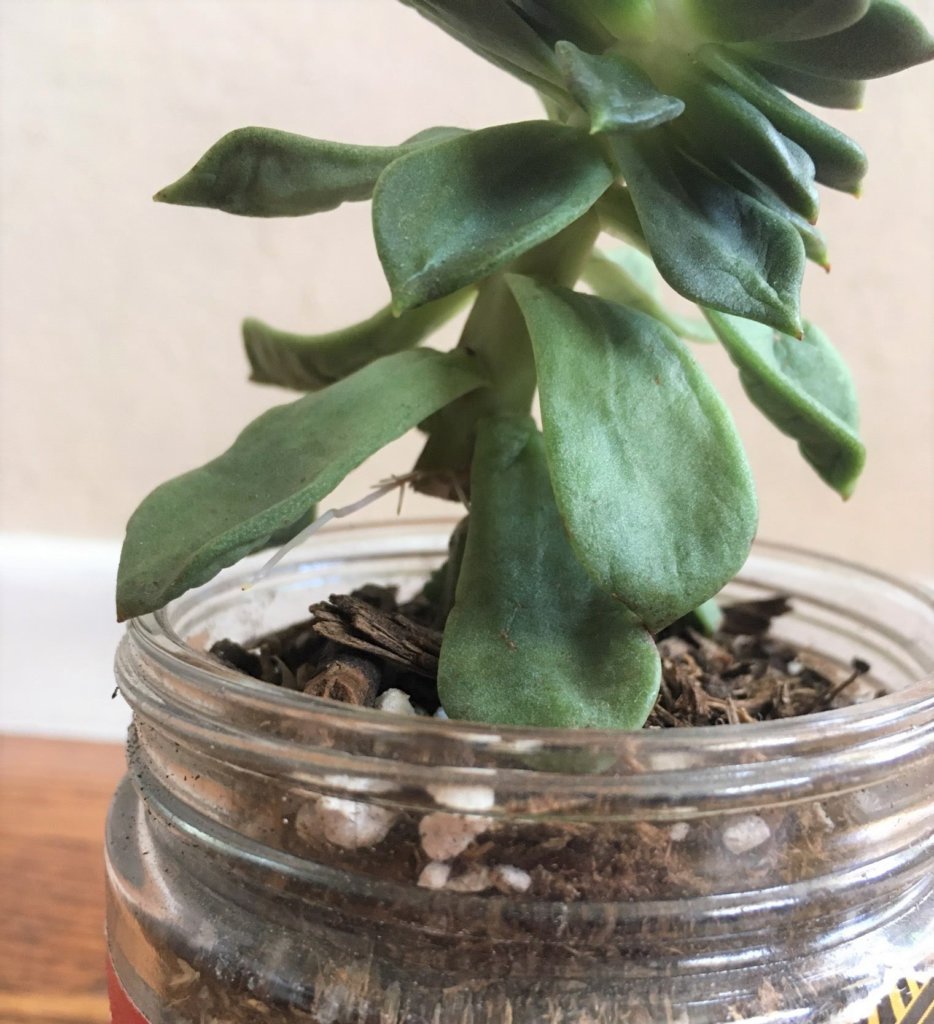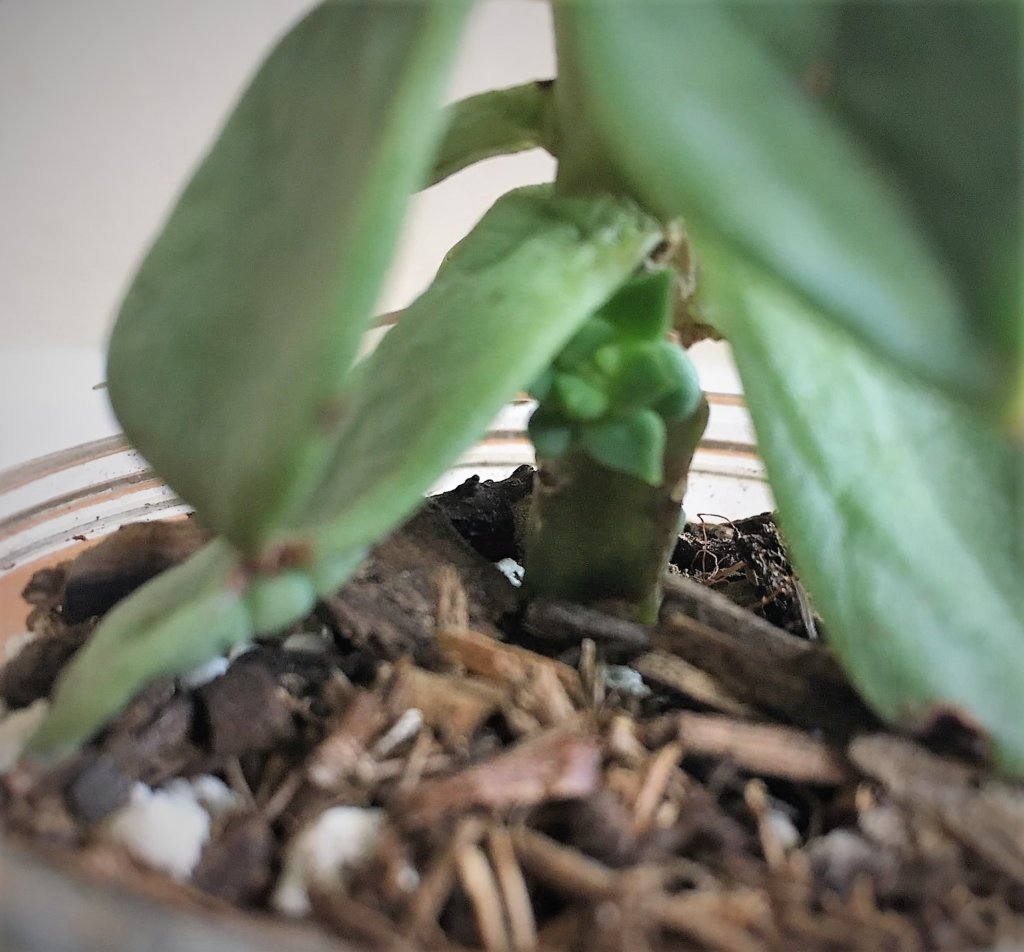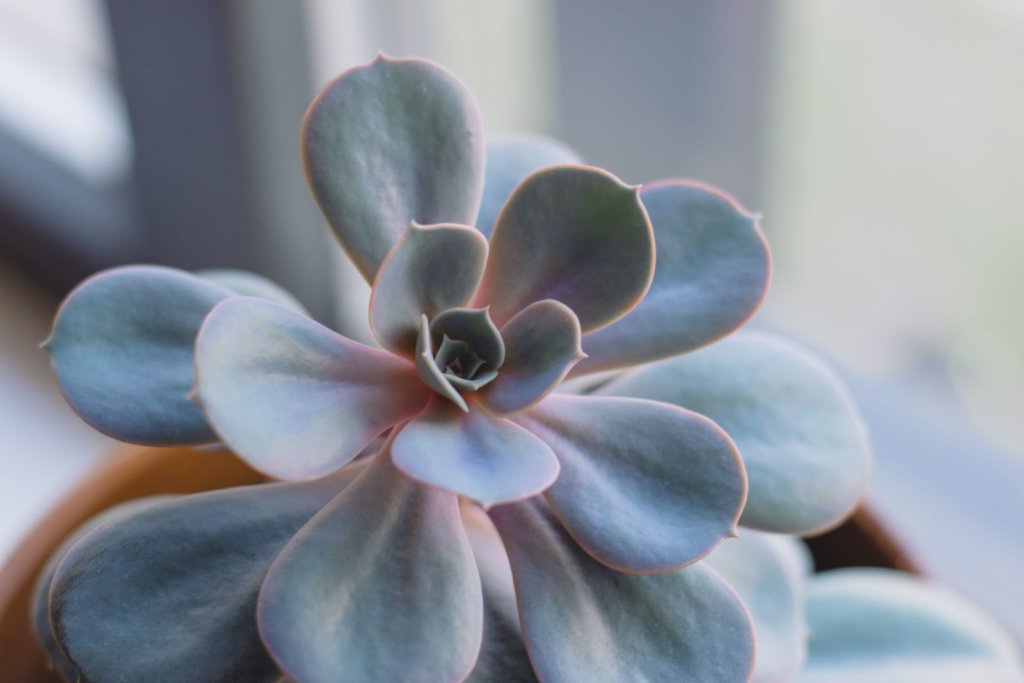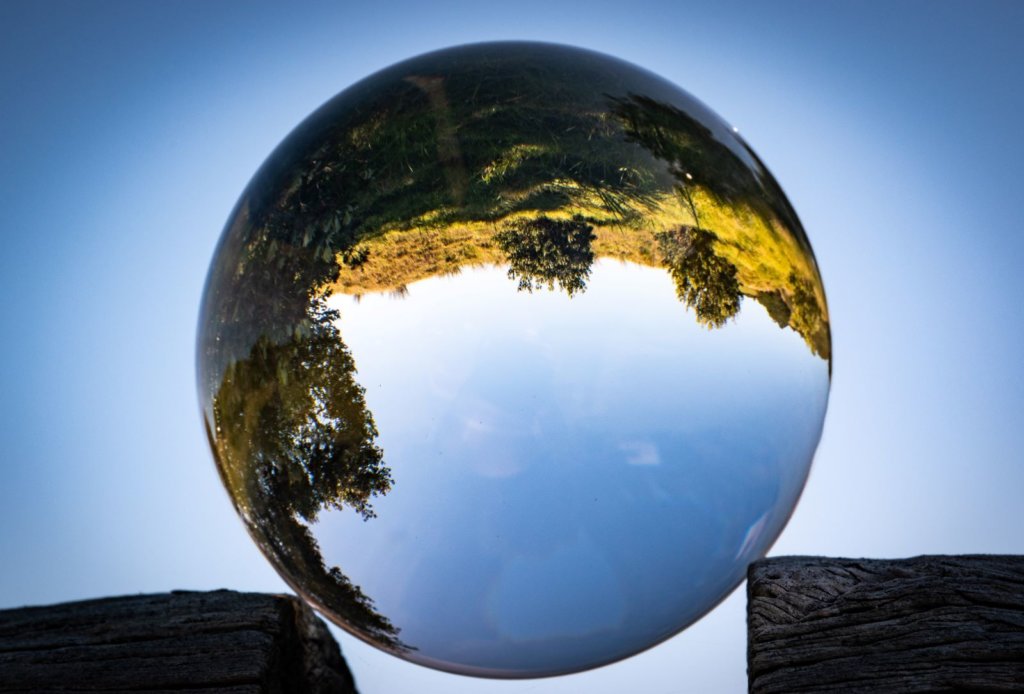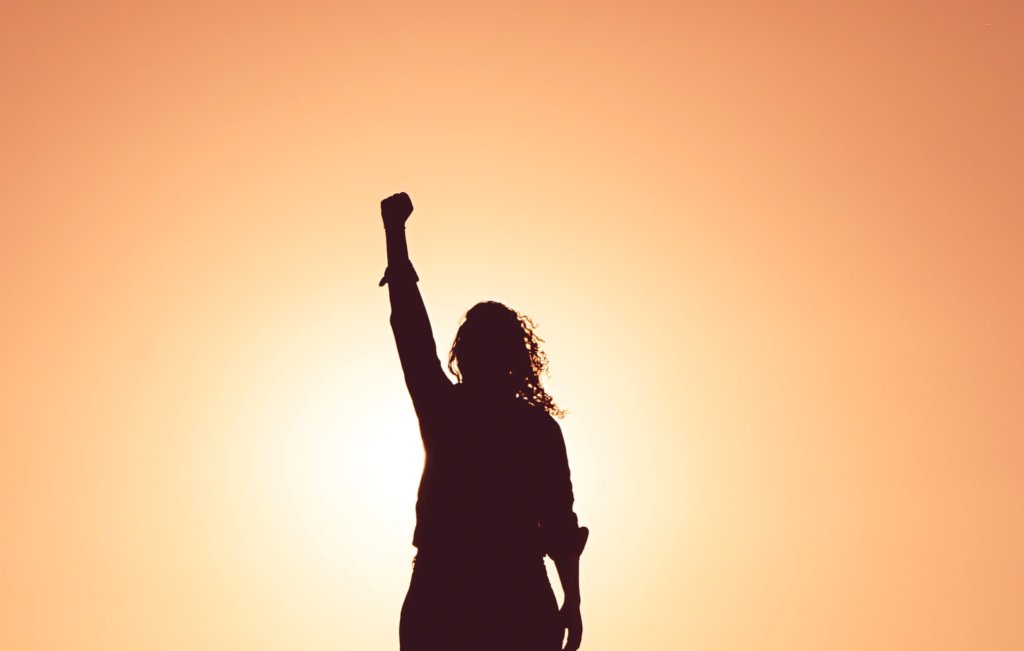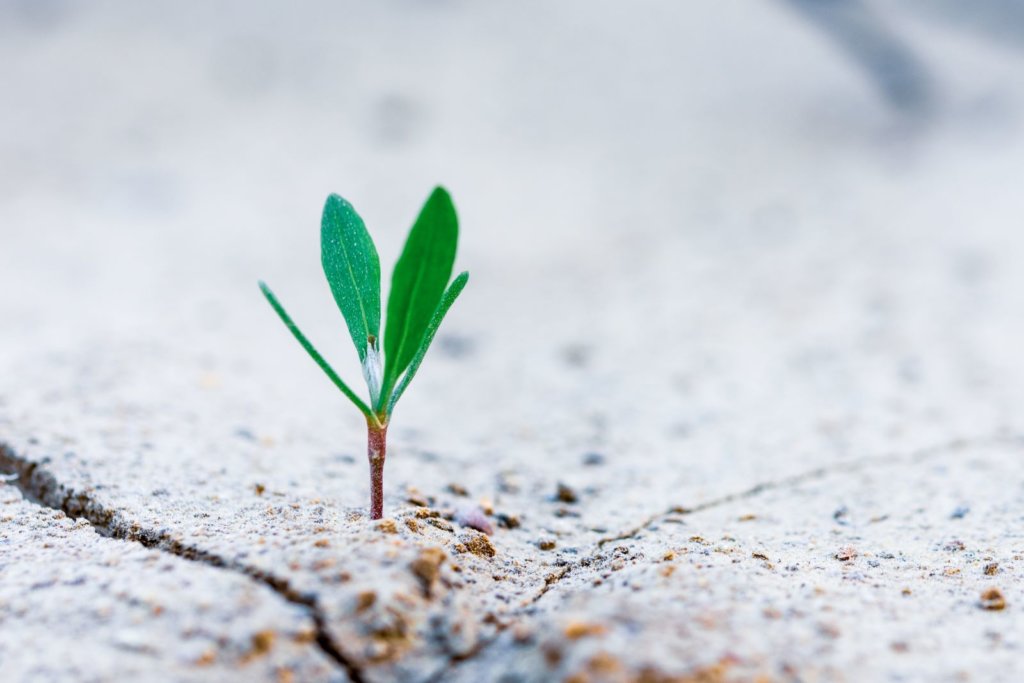(First off, I want to say even though I’m not writing about Black Lives Matter this week doesn’t mean I no longer care or it’s not on my mind. It is. Being a human being means I care about many things all at the same time. In addition to everything going on in the world, things still happen in my personal world, and that’s what I’m writing about today.)
On Saturday, I stuffed cream, cashmere gloves into my jacket pocket in preparation for my trip to the grocery store. I like to wear gloves when I know I’ll be encountering high-touch surfaces because it saves me from washing my hands. About six minutes in to my walk to the store, I noticed the gloves had escaped my pocket. I stopped in my tracks and did an about face, retracing my steps while scouring the sidewalk and the street for my gloves. I found one and kept looking. I walked all the way back home and didn’t find my other glove.
Because I still needed groceries, I turned around again and kept my eyes trained on the ground looking for my glove. Didn’t find it. After leaving the grocery store, I once more swept my eyes left to right, constantly looking for my other glove. If you’re keeping track, that’s three times I searched for my glove to no avail.
When I came home, I took a picture of my glove and uploaded it to Google for a reverse image search, to see if I could purchase the gloves again. Nope. Then I messaged three different people on Etsy to ask if they could make me a match. If that wasn’t enough, later in the evening, just for kicks, I searched the street two more times and came up empty. If it wasn’t obvious, I have trouble letting go. Not only of objects, but also of people and situations. Goodbyes are hard for me.
I try really hard to fix things so I won’t need to feel sad. In this case, if I found my other glove I wouldn’t feel sad or upset because the problem would be solved. I think it’s safe to say my other glove is gone. Tears are pricking my eyes even typing that. I don’t want it to be true but reality is like that. In real life, not everything can be fixed or solved. Even buying a new pair of gloves won’t truly replace the one I lost. A new pair won’t make up for what’s missing. I’m allowed to feel sad about that.
My therapist tells me frequently emotions are like tools and when they show up, use them. When sadness shows up it’s because of a loss. I’ve lost many things in my life and I don’t think I’ve properly grieved them all. I was too busy metaphorically combing the street trying to solve the problem to cry. But here’s the thing about grief – it doesn’t go anywhere. It stays in the body. It may express itself as lung trouble, or pain in the back, or weight gain, or something else, but grief sticks around until it’s felt.
This isn’t a profound post or fiery one or philosophical one. It’s a human one. I’m a human being and when I lose something, I feel sad whether I let myself cry about it or not. What I’m learning is life is easier when I let myself grieve. How much time and trouble could I have saved on Saturday if I had given in to the emotion I felt instead of fighting it? I don’t regret looking for my glove, but now that I know it’s not coming back, it’s time to grieve. Not only for my glove, but for other things too.
I dream of a world where we let ourselves cry when we lose something or someone. A world where we recognize emotions are not meant to be fixed but rather felt. A world where we let ourselves feel our feelings when they come up. A world where we embrace our humanness.
Another world is not only possible, it’s probable.
While watching a movie that addressed publishing the Pentagon Papers, what struck me the most is multiple presidential administrations maintained U.S. involvement in Vietnam because they didn’t want other countries to lose respect for us. Setting aside how screwed up that is, I can’t think of a single country that still has respect for the U.S. OK, maybe Brazil, which also has a fascist leader, but otherwise the pickings are slim. These days Trump doesn’t seem to care one iota what other countries think of the U.S. and instead only cares about appealing to his base: primarily white, Christian men who are racist.
I want to address that term, racist. Robin DiAngelo, author of White Fragility, said, “We have to stop thinking about racism simply as someone who says the N-word.” Meaning it’s possible some Trump supporters (but not only his supporters) are racist but think they aren’t because they don’t use the N-word or they have friends who are people of color. Racism is a system that benefits white people – it’s prejudice plus power. And white people who want to maintain the status quo are supporting racism.
Trump does not fall into the camp of someone who is unaware he’s racist; he’s blatantly so. One only has to look most recently at his decision to hold the now-moved rally in Tulsa on Juneteenth as evidence of that. If you don’t know, Tulsa is the site of one of the worst incidents of racial violence in the nation’s history. In 1921, hundreds of black people were attacked by a white mob that looted and burned many black-owned businesses and homes in the Greenwood District, a neighborhood that was then known as “Black Wall Street.”
Trump’s racism is calculated and it’s precisely why he’s in power. Back in 2017, the Atlantic published an excellent essay by Ta-Nehisi Coates, an excerpt from his book We Were Eight Years in Power. Coates said, “In recent times, whiteness as an overt political tactic has been restrained by a kind of cordiality that held its overt invocation would scare off ‘moderate’ whites. This has proved to be only half true at best. Trump’s legacy will be exposing the patina of decency for what it is and revealing just how much a demagogue can get away with.”
Coates said Donald Trump is the first white president because he “moved racism from the euphemistic and plausibly deniable to the overt and freely claimed.”
It was true in 2017 and it’s still true now. How much can a racist demagogue get away with? Especially when he’s no longer pretending to be a decent man, to care about what other people or other countries think of him? The answer as we’ve seen is quite a lot.
A part of me wants to fast forward to 2021 when I sincerely hope Donald Trump is out of office, but the reality is, what Trump embodies doesn’t go away with a new president. He’s merely a symbol of what’s been here all along. It’s up to us to create a more just society and also to remind elected officials they work for us and not the other way around.
I’m heartened by the current protests because that dynamic is playing out. When the Minneapolis City Council unanimously passed a resolution to replace the police department with a community-led public safety system, it was a signal that public outrage can make a difference.
There is power in the collective, both good and bad. We can either use our collective power to maintain the status quo, to support inequality of all kinds, or we can do something different. We can band together to create a world we’d like to see. I, of course, want that better world.
I dream of a world where we use our collective power to remind the government they work for us. A world where we dismantle racism as well as all other -isms. A world where we win back the respect of other countries because we’re operating with respect. A world where power returns to the hands of the collective, where it belongs.
Another world is not only possible, it’s probable.
I have only told this story to a handful of people but now seems like the right time to share it more broadly. A few weeks ago I wrote a post about being the kind of people we want others to be. I mentioned the peace prayer, which is often mistakenly called the St. Francis prayer. I linked to a couple of stories of ex-KKK members who changed their ways based on relationships with people they used to hate.
After I wrote the post, I started to question the value of what I do, of how I help others. Does it really make a difference that I write a blogpost every week? Am I changing anyone’s life in a deep and profound way by leading a group meditation on Sundays? Would I make more of an impact by befriending someone who is in the KKK and supporting their exit from the Klan?
Literally within a few hours of thinking those thoughts I was zoombombed by neo-Nazis at the group meditation I lead. They started scribbling swastikas over my screen. They asked how many Jews we’ve killed and did whatever they could to disrupt the meeting before my co-moderator and I ejected them. (Since then we’ve tightened security measures at the meeting to keep incidents like that from happening again.)
After I calmed down, I started to laugh. It was as if the universe said to me, “Really? Are you sure you want to befriend neo-Nazis? Are you sure the form of service you provide isn’t worthwhile?” The universe answered my question very quickly and validated for me, yes, this is what my gifts are, and yes, they are needed.
I bring this up because I’ve had conversations with several people – both white and black – who have lots of feelings about not being on the streets protesting the treatment of black and brown people. There’s a feeling they “should” be and maybe some guilt that they aren’t. I get it because I feel that way too. I want to support black, brown, and indigenous people. I want them to know I’m not OK with how they are treated and protesting is one way to demonstrate that. However, my nervous system cannot handle large crowds. I start to panic when I’m in large groups which is why I never attend concerts or sports games at large stadiums. Even going to a shopping mall wipes me out.
Yesterday I went to a small protest near my house but there is no way I can be in a throng of people. When I think about my zoombombing experience, I realize that’s OK. Everyone has different gifts and different abilities. We are all special in our own way and however we’re choosing to show up in the world is valid. A symphony orchestra requires numerous instruments to create beautiful music. Humanity is like that symphony – we can’t all be the cello.
In fact, my spiritual teacher says, “[D]iversity is the order of providence. One must remember that identicality is disowned by nature – nature will not support identicality … diversity is the law of nature and identicality can never be. But diversity is not the same as disparity. Disparity encourages exploitation based on differences, while diversity recognizes multiplicity which reflects underlying unity.”
I dream of a world where we recognize we’re not meant to all do the same thing. A world where we realize we are like the instruments of a symphony orchestra – each part is important, beautiful, and adds to the whole. A world where we cherish how we personally contribute to society. A world where we recognize we are made to be different.
Another world is not only possible, it’s probable.
You know the saying, “History doesn’t repeat itself but it often rhymes”? I’m finding that to be true. We’re currently rhyming not only with the 1960s, but also the 1860s. That may sound strange for me to say. How is what the U.S. is going through now anything like the Civil War era?
I’d say we’re already engaged in another civil war, albeit nontraditionally. We don’t have troops marching against one another, but we’re already seeing a fight pitting brother against brother, sister against sister, and sibling against sibling for people who identify as nonbinary. We’re fighting online, in homes, on the streets. We’re fighting with words, and actions, and yes, also guns.
This civil war, like all civil wars, is a battle between the oppressed and the oppressor. For this civil war though, there are no discernible uniforms. It’s harder to identify who’s on what side. Amy Cooper, the woman who called the cops on Christian Cooper in New York City, identifies as a liberal. At least it seems that way given her campaign contributions. It’s not so easy to say Democrats are social justice warriors and Republicans only care about themselves. It’s also not so easy to say if you’re a person of color you’re automatically fighting for justice because one only has to look at the discriminatory policies Ben Carson supports in order to see that’s not true.
A key difference with this civil war though? There is no “North” to escape to. There is no place in the U.S. where people of color have true freedom. George Floyd was killed in Minnesota. So was Philando Castile. “Barbecue Becky” called police on black men barbecuing in my own state of California. These days we’re fighting for a metaphorical North. I say “we” because even though I’m not a person of color, I still have a stake in the game.
The Reverend Dr. Martin Luther King Jr. famously said, “No one is free until we’re all free.” I agree. My freedom, my ability to thrive in this world, is dependent on others being able to do the same. It’s part of why I mentioned in my last post that collective welfare is more important than individual welfare. We can relate that to this ongoing pandemic: If I contract COVID-19, I can spread it to other people. Your health is dependent on my health. That’s why we’re staying at home right now.
If you want another example, when more women work, economies grow, according to the United Nations. If female employment rates in more countries matched that of Sweden, it could boost gross domestic product by more than $6 trillion, the UN said. However, gender gaps cost the economy 15% of gross domestic product.
What would the world look like if people of color were allowed to thrive? What kind of contributions would they be able to make if they didn’t have to work so darn hard just to live? If they didn’t have to be in fear all the time? If they could operate in the world like, well, the average white person?
That’s the world I’m not only dreaming of, but fighting for. I’m not on the streets because my nervous system can’t handle it, but I’m contributing when, where, and how I can. And until that world exists, I’ll continue to fight for it and also dream of it.
I dream of a world where everyone is allowed to thrive no matter their race, ethnicity, gender, sexual orientation, or religion. A world where people can express the fullest, truest versions of themselves without fear. A world where we stand up for one another knowing we’re all interconnected.
Another world is not only possible, it’s probable.
It’s a three-day weekend here in the U.S. and it has me contemplating another three-day weekend from 2013. It was Labor Day and I had just moved into a new place, a cottage. I was excited at the prospect of not sharing any walls or ceilings with a neighbor and looked forward to much-needed peace and quiet. However, on that Saturday, the property manager of the complex played loud music well into the night – 1 a.m. ticked by, and then 2 a.m.
I called her, no answer. I texted her, no answer. I left my bed and knocked on her front door. No answer. Finally, I walked around to her bedroom window and knocked, asking her to turn off her music. She complied. Peace at least.
However, the next morning, I woke up to 27 text messages from her that were mildly threatening: “How dare you knock on my window? How would you like it if I knocked on your window? I’m going to tell the landlord!” etc. I apologized for startling her but explained it escalated to that point because I wasn’t able to reach her in a less intrusive way. I thought that would be the end of it. Wrong. The next day I overheard her talking to my next-door neighbor about me. But what stuck out the most is she said, “It’s the weekend! I’m allowed to be as loud as I want on the weekend!”
No. Just no. You are NOT allowed to be as loud as you want because you don’t have work the next day. There are still rules and noise ordinances. What makes the situation even more infuriating is as a property manager she was supposed to be enforcing the rules, not breaking them.
This woman comes to mind frequently because her sense of entitlement and self-centeredness runs rampant in the U.S. I’m seeing that a lot especially during this pandemic. Some people think and behave as if their individual needs are more important than collective needs.
My spiritual teacher says, “But if we analyze with a cool brain, it becomes quite clear that just as my life is important to me, others’ lives are equally important to them; and if we do not give proper value to the lives of all creatures, then the development of the entire humanity becomes impossible.”
Furthermore, if we look at it a little more closely, we see collective welfare lies in individuals and individual welfare lies in collectivity. I tried to think of an example where my individual welfare doesn’t contribute to collective welfare, and none came to mind. In the case of my former property manager, her perceived individual welfare negatively impacted the collective because it meant not only I, but the other tenants, may also have been groggy and sleep-deprived, which in turn affected our mental functioning, which in turn affected our interactions with ourselves and others, and so on.
If I flip that around, getting enough sleep positively impacts the collective for the same reasons. In fact, my spiritual teacher is quite adamant that individual liberty should not go against the interests of the collective body. He says it is important for all of us to develop a rationalistic mentality, or “awakened conscience.” What that means is studying the pros and cons of each decision, but also factoring in whether the decision contributes to the welfare of all.
At this point people might be thinking I’m “un-American,” to which I say yes, I am, if “un-American” means I care about how everyone is doing, not just my small circle. Yes, I’m un-American if that means I value not just my life but life in general. Yes, I’m un-American if that means I think we should all learn how to live in harmony with one another in a more fair and equitable way. Yes, I’m un-American if that means I have my sights set on a better world for us all.
I dream of a world where we recognize collective welfare matters. A world where we realize individual welfare lives in the collective and collective welfare lies in the individual. A world where we all take care of each other. A world where one person is not allowed to negatively impact those around them. A world where we let ourselves be “un-American.”
Another world is not only possible, it’s probable.
I’m upset right now. I’m upset by callousness, by selfishness, and the expression of various -isms (racism, classism, antisemitism, etc.). It hurts my heart to hear people say things like, “All homeless people should be euthanized for their own good,” or “I don’t care if other people suffer because I’m fine.” Someone on my Facebook feed even said, “I don’t like Jews. They’re not trustworthy.” As a Jewish woman, that one in particular hit home.
I’ve literally cried about all of these statements. I have so much grief that people can be this mean. My first impulse is to argue, to point out statistics and news articles that counter the person’s point of view. However, as you likely already know, that doesn’t work. That’s why there are so many memes about how arguing on the internet accomplishes nothing. If anything, once you start arguing with someone, they only become more entrenched in their point of view.
I brought all of this sorrow to my meditation, holding the question, “What can I do about all of this?” and the answer that came back was the peace prayer that is often misattributed to St. Francis. I’m sharing it in full here:
Lord, make me an instrument of your peace.
Where there is hatred, let me bring love.
Where there is offense, let me bring pardon.
Where there is discord, let me bring union.
Where there is error, let me bring truth.
Where there is doubt, let me bring faith.
Where there is despair, let me bring hope.
Where there is darkness, let me bring your light.
Where there is sadness, let me bring joy.
O Master, let me not seek as much
to be consoled as to console,
to be understood as to understand,
to be loved as to love,
for it is in giving that one receives,
it is in self-forgetting that one finds,
it is in pardoning that one is pardoned,
it is in dying that one is raised to eternal life.
We see that this sentiment works. It’s the story of former KKK Grand Dragon Ken Parker who left the group after repeated encounters with people who he used to consider his enemies. It’s the story of ex-KKK member Chris Buckley who befriended Dr. Heval Kelli, a cardiologist, civil rights activist, and oh yeah, a Muslim.
It’s also in line with my spiritual philosophy. My teacher said genuine love for humanity is the only way to solve problems great and small.
“This love will give people guidance; it will show them what to do and what not to do,” he said. “It is not necessary to study great numbers of books or to rely upon those who speculate with the future of the silent masses. The only essential requirement is to look upon humanity with genuine sympathy.”
That feels both easy and difficult right now. I have lots of sympathy for marginalized groups, but not so much for people who are antisemitic, for instance. However, I know that people who have been hurt themselves hurt other people. This woman who said Jews aren’t trustworthy is also coming from a place of wounding, and me railing against her will only calcify her opinion that Jews are terrible. The best thing I can do for anyone is continue to love them, to show them kindness, and remind them we aren’t so different after all.
I dream of a world where we embody the peace prayer as much as we can. A world where we sow love instead of hate. A world where we bring harmony in the time of discord. A world where we bring light into darkness. A world where we become the type of person we want others to be.
Another world is not only possible, it’s probable.
Maybe a month ago, I noticed one of my succulents had a wilted leaf. I tugged it off and instead of merely removing the leaf, I managed to tear the stem of the plant nearly in two. As you can see in the picture below, this succulent started leaning like the Tower of Pisa. I propped a piece of cloth under the repurposed jar housing the succulent to force the stem halves to touch. I hoped the contact would encourage the stem to grow back together.
I’ve been watching this succulent like a concerned mother hen, tracking any and all changes. Recently I noticed a root growing out of the ripped stem, dangling in thin air, which you can also spot in the picture. If that wasn’t enough, the place where I pulled off the wilted leaf is now growing a whole new succulent rosette. I’ve posted a picture of that below.
I’ve written about adversity and overcoming obstacles many times, but witnessing this succulent demonstrates to me not only are living beings capable of overcoming obstacles, sometimes they can thrive because of them.
Usually when I think about resilience, I picture band aids and casts. That is, covering and supporting the wound and moving ahead, even if it’s a little more difficult. Or I imagine a dented car – it still runs, but doesn’t look as pretty. But this succulent is encouraging me to reframe resilience. Maybe resilience can mean not only surviving, but thriving. The little baby rosette would never have appeared if I hadn’t made space for it by removing a leaf.
It has me wonder, what is COVID-19 making space for both individually and collectively? What is happening right now that otherwise would not? Friends of mine are writing more, starting standup comedy routines, growing gardens, connecting with their neighbors. They’re moving their businesses online and making more money than they did before the pandemic. Some of these occurrences are rare, I acknowledge that. Not everyone is making more money now than they did prior to the pandemic. But even people who are struggling, are they connecting to people they otherwise would not have?
As a society, what changes will occur as a result of this pandemic? Starting this month in Paris, some of the city’s busiest streets will be reserved for cyclists to limit crowds on public transport. Some streets will be pedestrian-only. And it’s not just Paris – some Paris suburbs are announcing plans for bike lanes as well. The mayor of Paris wants the changes to become permanent, which could do a lot in terms of air pollution for the city. I would argue that’s an example of thriving as a result of COVID-19 and not merely surviving. What else could change for the better?
I dream of a world where we recognize we can not only survive hardship, but thrive as a result of it. A world where we recognize sometimes difficulties make space for something to bloom that otherwise would not have. A world where we use this crisis as an opportunity to change for the better. A world where we follow the Tao of the succulent.
Another world is not only possible, it’s probable.
Something I find fascinating about this time period is I think almost everyone feels powerless to some degree. That could be because they’re unsure whether they’ll contract COVID-19, or if their loved ones will die. People may be feeling powerless over what’s happening with the economy, or the fact they’re living under quarantine. Powerlessness could also arise over something as small as being able to buy butter and flour.
It’s interesting to notice how people are responding to that powerlessness. Some folks are diving into substances like food and alcohol. Others are chafing against the stay-at-home order and instead clamoring to reopen their state. The anti-quarantine folks remind me of early American revolutionaries in some respects, but also I think they’ve lost touch with why we revolted in the first place.
If you look back at American history, King George III heavily taxed the colonists to refill the British coffers after winning the French and Indian War. The colonists were taxed without representation and pissed about it, eventually defying the government and revolting. We revolted against an unjust, inequitable system that benefited the wealthy elite an ocean away.
These days, the people who are defying government orders seem to think they’re tapping into the American spirit that values freedom, but in actuality, they’re putting themselves and others in harm’s way. If we take a look at who’s benefiting from this pandemic right now, it’s again the wealthy elite. But instead of being tied to the government, these days the wealthy elite are tied to corporations. In an era when corporations are considered people, they are the ones being protected through this pandemic, not you and me. You and I are left to flounder, to figure it out on our own. Again, for me that harkens back to revolutionary times, which is fitting at least from an astrological perspective.
The U.S. is undergoing its Pluto return. What that means is Pluto is in the same position it was when the country was founded. A positive use of Plutonic energy is a greater sense of empowerment, strengthening will, and transformation. A negative use of that energy is power struggles with dominating individuals or institutions, a clash of wills, and destruction.
The last time Pluto was in this position, a mentally ill man (King George III) ruled over the U.S. and exploited its citizens for his own gain. I’d argue we’re seeing another mentally ill man rule over the U.S. and exploit its citizens for his own gain. While it’s easy to feel disheartened by everything happening, and believe me, sometimes I do, this period is also an opportunity.
We have a chance for rebirth and transformation. A chance to really live the values this country was founded on: life, liberty, and the pursuit of happiness. And instead of those tenets only applying to wealthy white men, they can apply to everyone. This is our chance to create a country that values and supports all people. This is our time to honor real happiness that isn’t tied to material gain at the expense of the planet. To live in harmony with all living beings. This is our time to evolve into a better version of ourselves, our country, and our planet.
I dream of a world where we wrest power from the powerful and create a more just society. A world where every person is allowed life, liberty, and the pursuit of happiness. A world where we respect not only each other but all living beings. A world where we also act as stewards for the planet itself and enact a planetary revolution.
Another world is not only possible, it’s probable.
The other day a close friend remarked as a society we have decided we will do anything to save a human life, which is both true and not true. It’s true that we are physically distancing, that we’re staying at home, that many businesses are closed due to COVID-19 because we want to save lives, but at the same time in the U.S. anyway we’re seeing the total opposite: valuing capital above all else.
Lieutenant Governor of Texas Dan Patrick wants to reopen the state and said “there are more important things than living.” In March, he went on Fox News and said “lots of grandparents” would rather die than see the U.S. economy suffer. Also, senior citizens should “take a chance on survival” for the good of the Dow Jones. He’s not alone – Rep. Trey Hollingsworth, R-Ind., said that deaths due to COVID-19 were “the lesser of these two evils” compared with a failing economy. In some ways he’s right because we don’t know how many people will die because they’re out of work, they’re starving, they’re killed by domestic violence, or afraid to go to the hospital because of COVID-19. It’s a tricky life-and-death balance for sure, but all of it I think speaks to our flawed capitalistic systems.
An article in Common Dreams said whether Americans know it or not, the government is working on behalf of capital. This is evident because the government is prioritizing the health of corporate balance sheets rather than human bodies. We know this because for the most part people are going on unemployment benefits rather than remaining on existing payrolls. We know this because we ran out of federal relief money for small businesses but not big businesses.
I keep thinking about something a finance professor at a prestigious university said to me years ago: capitalism requires an economic underclass. In order for capitalism to function, someone has to get the short end of the stick. It seems to me we’re reaching a point where the vast majority of people are in the economic underclass. I want to acknowledge some people are really, really in the underclass. Some people are suffering FAR more than others, but even people who perhaps felt comfortable before the pandemic are feeling the economic pinch now.
I said this to my neighbor a few weeks ago, but I’m reminded of Marie Antoinette, the last queen of France before the French Revolution. It’s a myth that she said, “Let them eat cake” in response to people clamoring for bread, but the sentiment is alive and well. Las Vegas Mayor Carolyn Goodman wants to reopen the city’s casinos, hotels, and stadiums, but when asked if she’d be willing to spend nights on casino floors alongside other visitors, she evaded the question and then replied, “First of all, I have a family.” How very out of touch.
What am I building to here? It seems to me we’re on the cusp of a revolution. How much more suffering do we have to endure before we say enough is enough? My spiritual teacher said, “The inevitable consequence of exploitation is revolution. When the merchants, maddened with excessive greed, lose their common sense completely and forsake their humanity totally, then the opportune time has come [for revolution] …. Revolution takes place when, from the economic perspective, only two classes remain in society: the exploiters and the exploited.”
Sounds to me like we’re there. I’m ready for the revolution y’all. I’m ready for a world that guarantees basic necessities. A world that no longer operates on the false principle that anyone can become rich if they only work hard enough. A world that puts greed in check and limits how much wealth one person can accumulate. A world where we put a stop to exploitation and value living beings for how precious they truly are.
Another world is not only possible, it’s probable.
The other day I learned the word “apocalypse” comes from Greek and it means to uncover or reveal. Well that certainly puts things in perspective, doesn’t it? I know the connation of apocalypse is doom and gloom, “We’re all going to die,” “The world is ending,” etc., but what if we returned to the root meaning? What if we considered apocalypses are instead times to reveal what’s not working both personally and collectively?
From that lens, we’ve survived many apocalypses. That’s not to say each apocalypse hasn’t brought its own special brand of suffering and death, because it has. I also don’t want to seem Pollyanna-ish here. I woke up this morning feeling gloomy because I know some people are not only dying from COVID-19, they’re also dying from starvation, or stuck in abusive situations at home, or falling into despair. I feel personal grief as well as collective grief. At the same time, this apocalypse is very revealing.
It’s revealing disparity, corruption, and broken systems. However, it’s also revealing kindness, compassion, and care. What’s working in our own lives? Who can we rely on right now? Where are we finding support? We’re discovering all of that as well. We’re becoming aware of what’s working and what’s not working. Something that I’ve learned over and over again is awareness is a point of power. You can’t change anything until you first know it’s there. That’s what this apocalyptic time is doing for us: bringing awareness to pretty much every facet of our individual and collective lives.
In the spirit of awareness as a point of power, I want to mention four possible futures as a result of COVID-19 according to my friend Sohail Inayatullah who is a professional futurist. In a recent YouTube talk, he presents four possible scenarios: the Horrifying Future, the Needed Pause, the Great Health Awakening, and the Great Despair.
In the Horrifying Future, there’s a feeling of dread and angst. The individual feels like they can’t control anything. We experience a recession or depression.
In the Needed Pause, the next year is difficult. Everything is slower than it was before. All conferences and sporting events are canceled. We’re stuck at home and doing slower things like breathing, yoga, and meditation. Then next year life will return to normal and we’ll have business as usual.
In the Global Health Awakening, this pause fundamentally changes who we are and how we show up in the world. There are changes to global health systems and the global world economy such that we start taking care of the planet and of each other in better ways.
In the Great Despair, none of our efforts succeed, the virus comes back, and there’s danger everywhere. The stimulus packages work temporarily and then create hyperinflation. Nation states split or fracture.
All of those seem possible to me! How do we use this apocalypse to create a better world? Inayatullah says part of it is understanding wellness and wellbeing are no longer just interesting ideas, they’re vital necessities. It also helps to change the metaphor of our lives to ask who do we want to be? For instance, instead of feeling like a headless chicken, perhaps the metaphor we start using is that we’re a wise owl calmly responding to life. Or perhaps we think of ourselves as a fast cheetah, able to move swiftly in any situation.
Personally, I don’t want to keep feeling like a headless chicken, running around frantically and feeling out of control. I’d much rather contribute to the Global Health Awakening by being a wise owl, taking precautions and acting with intention. I want to help myself and my community create a world that’s more wholistic, more caring. A world that takes into account the needs of individuals as well as the collective. A world that understands the collective is what saves us, what we must rely on to thrive. A world where we each do what we can to create that bright future.
Another world is not only possible, it’s probable.
